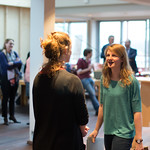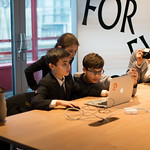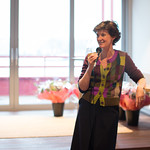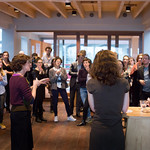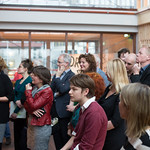Start-ups in education
In June 2015, Kennisland called on citizens to submit ideas for new schools in Amsterdam. This was a national and indeed an international first: city residents were given the chance to design and set up their ideal school themselves.

In recent years, the taxi and hotel industries have been rocked by new initiatives such UBER, ABEL and Airbnb. These start-ups have introduced new business concepts based on a much more direct relationship between providers and customers. They have shaken up existing relationships significantly and ensured innovation in what is on offer. Since the summer of 2015, a similar “disruption” has been underway in education in Amsterdam.
In June 2015, at the request of Simone Kukenheim, the local councillor with responsibility for education, Kennisland called on citizens to submit ideas for new schools in Amsterdam. This was a national and indeed an international first++“Moonshot in education innovation”Read this very positive article in The Huffington Post. : city residents were given the chance to design and set up their ideal school themselves. The interest in the Onze Nieuwe School (Our New School) project was overwhelming. 124 “schoolmakers”124 ‘schoolmakers’ submitted a plan and another 174 others an inspiring idea. Tens of thousands cast their votes. responded to the invitation and submitted a plan. Tens of thousands of people cast their votes on the website. A professional jury selected fifteen schoolmakers who were subsequently guided by Kennisland during an intensive six-month period in the so-called Incubator. This involved meetings, visits by expert coaches and a learning ring++Learning ringThe Ministry of Education, Culture and Science, the Education Inspectorate, the Municipality of Amsterdam, a school administrator, a parents’ representative (OCO) and a teacher. of relevant actors so that the lessons learned could be directly translated into practice.
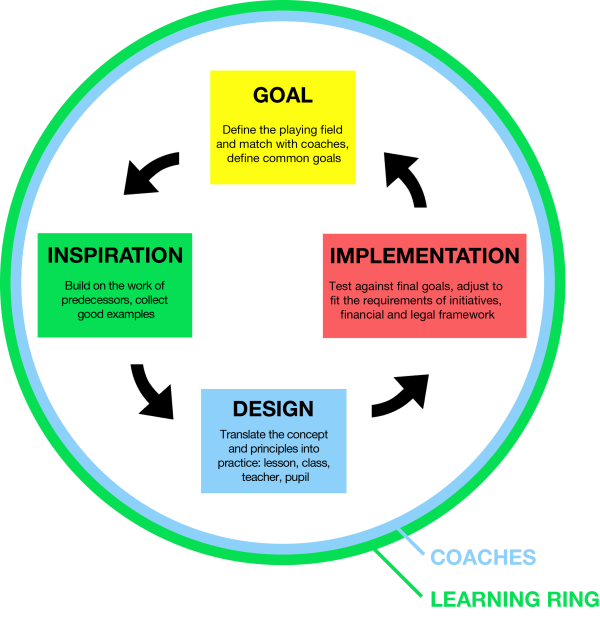
In January 2016 the College van B&W“Moonshot in education innovation!” – The Huffington post (Municipal Executive) announced which four initiatives would actually get the chance to start their schools. These were Laterna Magica++Laterna MagicaA school for 0-18 based on the concept of natural learning, where pupils make a significant contribution to their own education., KIEM VMBO++KIEM VMBOA school where action and doing are key, a learning style which better meets the learning style of boys., Klein Amsterdam++Klein AmsterdamA school that uses the city as a learning environment. Pupils go out into the city, but the city also comes into the school. and the Alan Turing School++Alan Turing SchoolA continuous learning programme for pupils aged 4-18, where the core subjects are based on themes.. These four schools will prepare for the start of their new schools in the school year 2016/2017 in the so-called Kraamkamer (Nursery).
Insights into education innovation
Onze Nieuwe School is a rich experiment that has yielded many insights into education innovation. The most important are:
1. There is plenty of capacity for thinking and doing in society
The interest in the Onze Nieuwe School project shows that there is a desire among parents, entrepreneurs and teachers to become actively involved in education. This is a movement towards democratisation that is comparable to developments in the taxi, food and hotel sectors, for example. Many teachers are no longer simply the loyal implementers of existing teaching methods and government policy documents. Parents and pupils are no longer obedient consumers of existing education Many teachers are no longer simply the loyal implementers of existing teaching methods and government policy documents. Parents and pupils are no longer obedient consumers of existing education. and are increasingly opting for new forms of learning, even where these have not yet been (fully) proven. What’s more: when new initiatives are absent, they take the initiative themselves. It is therefore not surprising that the schoolmakers include many parents and teachers who believe they can do it better. Themes that many people have shown an interest in include: schools for 0-18 year olds, learning from and with society, personalised learning and greater attention to non-cognitive subjects such as personal development and arts and culture.
Jury member and Professor of Educational Sciences Monique Volman:
“What a relief, after all these years in which education was mostly something to complain and whine about (…). Here, education is something you want to be part of, something that you could start a conversation about at a birthday party without embarrassment. And the municipality of Amsterdam also appears to be correct in thinking that there is not just a need for more places for education but also for new educational ideas.”
2. Starting a new school is too complicated
Despite the need for new schools, in practice it is very complicated to start one. Firstly, the standards for establishing a new school are strict and complex. And once you’ve passed that hurdle, new rules suddenly appear. These rules are mainly aimed at maintaining the current conventional education system, which makes it especially difficult for newcomers to win a place in the education market.Rules are mainly aimed at maintaining the current conventional education system, which makes it especially difficult for newcomers to win a place in the education market. That’s a shame, because these newcomers could make an important contribution to the search for education that meets the needs of today. If we want to give new schoolmakers a fair chance, and increase the freedom to establish new schools, various amendments to the regulations are needed. The law “Meer ruimte voor nieuwe scholen” (More space for new schools) connects well with this. But a new law alone is not enough. There should also be more room in the budgeting rules for establishing new schools, in competence rules (so that, for example, secondary school teachers could teach primary school pupils) and in accommodation rules (so that it would be possible, for example, to design schools differently or even to establish a school without a building).
In addition, more use could be made of the existing room for manoeuvre: if you look more closely, there are numerous traditions and rules that have long since ceased to be mandated by legislation.If you look more closely, there are numerous traditions and rules that have long since ceased to be mandated by legislation. Repeating years is not required, and teachers may depart from normal teaching methods – although not many dare to do so. Support for new initiatives can provide a breakthrough and can offer teachers, parents and pupils the chance for innovation without holding them back with preconceived ideas of “what is and what is not allowed”.
3. We need openness within existing relationships
More space for new school concepts requires not only an easing of the rules for establishing schools, but also a willingness on the part of school administrators, local councils, the ministry and school inspectors to look constructively for creative ways to enable new educational concepts. Too often, one party pushes responsibility towards the other when it comes to creating scope for innovation; this leaves the playing field in a state of gridlock. Existing power structures must be broken open. A learning and constructive exchange is required in which all actors have an eye for each other’s interests and responsibilities while also searching for what is possible together. It is only then that schools will be able to make much better use of the brainpower and networks of their teachers, parents and pupils, and the ideas present in society realised. As a result of the schoolmakers’ initiative – in which all actorsMore space for new school concepts requires not only an easing of the rules for establishing schools, but also a willingness on the part of school administrators, local councils, the ministry and school inspectors to look constructively for creative ways to enable new educational concepts. came together several times during the process to discuss opportunities and obstacles – several school boards are now willing to “adopt” a few newcomers. In turn, the Ministry of Education, Culture and Science and the Education Inspectorate have shown a willingness to create space in existing legislation and regulations and in the assessment framework.
Results
Onze Nieuwe School has set in motion a constructive discussion in Amsterdam about what good education is, about what an addition to the education currently on offer in Amsterdam could be and how these new schools could be made possible. It is an excellent opportunity to expand not only the educational offer but also to make it more diverse and more innovative. The entries submitted show which needs exist in the city and which new educational initiatives could answer those needs.
In addition, Onze Nieuwe School has been a learning experience for everyone involved: they observed and learned how the process of establishing a school works. All the stakeholders in education in Amsterdam (the learning ring) watched the process closely. They saw the issues encountered by the schoolmakers, the obstacles to innovation in education that exist and how legislation can be a barrier to the establishment of new schools. As well as the realisation of new educational initiatives, this joint learning process has made all concerned aware of their own role in the development and establishment of new schools. This is important, especially given the new legislative changes. These should make it easier in practice for new schoolmakers to make use of the constitutionally-guaranteed freedom of education++Freedom of educationRead more about freedom of education as a constitutional right..
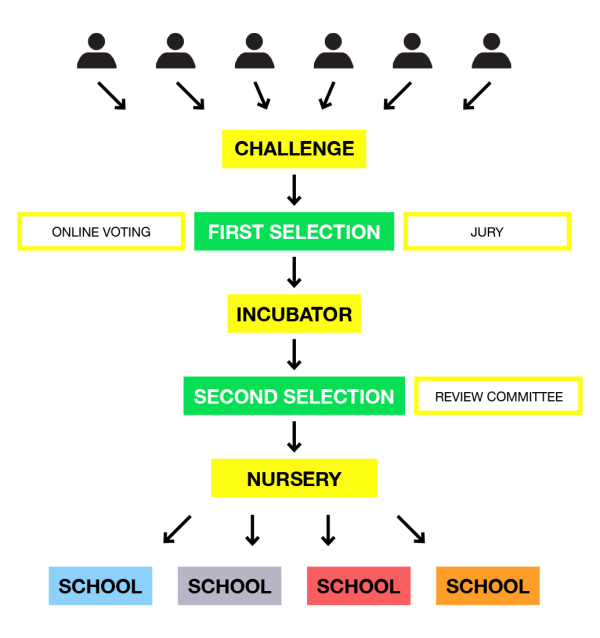
A sustainable, inclusive society starts with young people and education. This is why we are working to develop the innovative capacity of teachers, school leaders and administrators. Our approaches focus on the living environment and perspective of young people, rather than the system environment of policymakers, test designers and developers of teaching methods.
Education and youth

